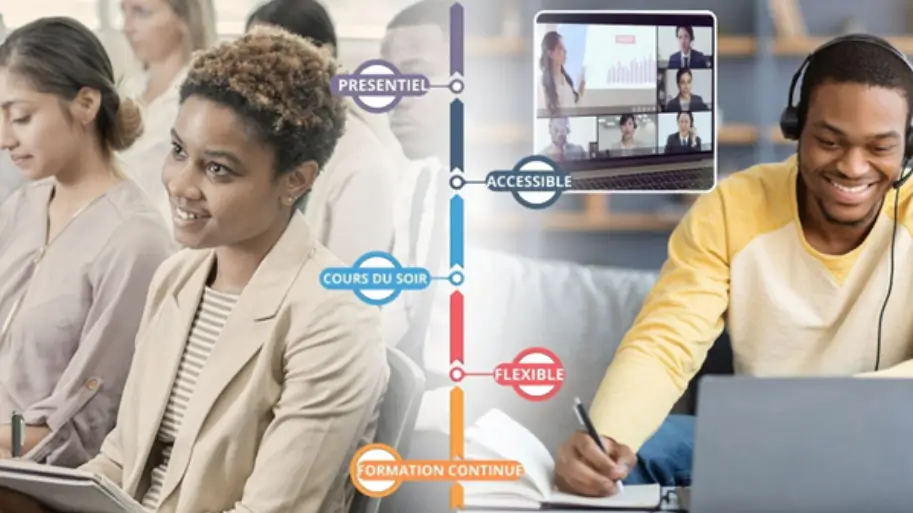
Continuing education has always been an essential pillar of professional development, enabling professionals to remain competitive and relevant in an ever-changing job market. Historically, continuing education was limited to face-to-face seminars and evening classes. Today, with the advent of digital technology, it has evolved to become more flexible, accessible and personalised than ever before.
I. The evolution of continuing training

The earliest forms of continuing education were often formal programmes organised by academic institutions or employers. These programmes, although effective, were limited by their rigidity and restricted accessibility.
The impact of the digital revolution
With the arrival of the Internet, a radical change took place. Online courses, accessible to a global audience, began to appear.
MOOCs (Massive Open Online Courses) have given millions of people access to high-quality courses, often free of charge.
Transition to flexible, personalised learning methods
Today’s continuing training is characterised by much more flexible approaches. Professionals can learn at their own pace, choose the subjects that interest them and adapt their learning to their schedule. This flexibility is largely due to technological advances that enable the learning experience to be highly personalised.
II. Emerging trends in continuing education

Mobile learning (m-learning)
Mobile learning is a major trend in modern continuing education. Thanks to the ubiquity of smartphones and tablets, learners can access courses, videos and quizzes wherever they are.
Applications such as Duolingo, Coursera and LinkedIn Learning have made learning accessible to anyone, at any time.

Micro-certifications
Micro-certifications, or ‘digital badges’, are small certificates issued for the mastery of specific skills. Unlike traditional diplomas, they can be obtained quickly and focus on specific skills.
For employers, they offer tangible proof of a candidate’s skills, while employees can demonstrate their commitment to continuous development.

Social learning
Social learning exploits human interaction and collaborative technologies to enrich the learning experience. Discussion forums, professional social networks and platforms allow learners to share knowledge, ask questions and collaborate on projects. This approach reinforces learning by doing and the exchange of ideas.
III. The future of continuing training

Integrating artificial intelligence and virtual reality
Artificial intelligence (AI) and virtual reality (VR) represent the future of continuing education. AI can provide personalised recommendations based on learner progress and preferences, while VR offers immersive environments for realistic, hands-on training.
Advanced personalisation of learning
With AI, the personalisation of learning will reach new heights. Adaptive learning platforms will adjust content in real time to meet the individual needs of learners, maximising the effectiveness of training.
Expert Training for Project Managers

Ongoing training is a valuable investment for professionals, and OM Consulting Group offers a comprehensive range of training courses for project managers.
Our expertise covers several key aspects of project management, tailored to the current needs of professionals :
Financial management : training in material accounting, budget planning, cash flow management and financial analysis, etc…
Monitoring and evaluation : setting up a monitoring and evaluation system, drawing up a monitoring and evaluation manual and conducting data quality analysis (DQA), etc…
Procurement : understanding the different methods of procurement, study of donor rules and procedures, drafting a DAO, AMI and DP, etc…

